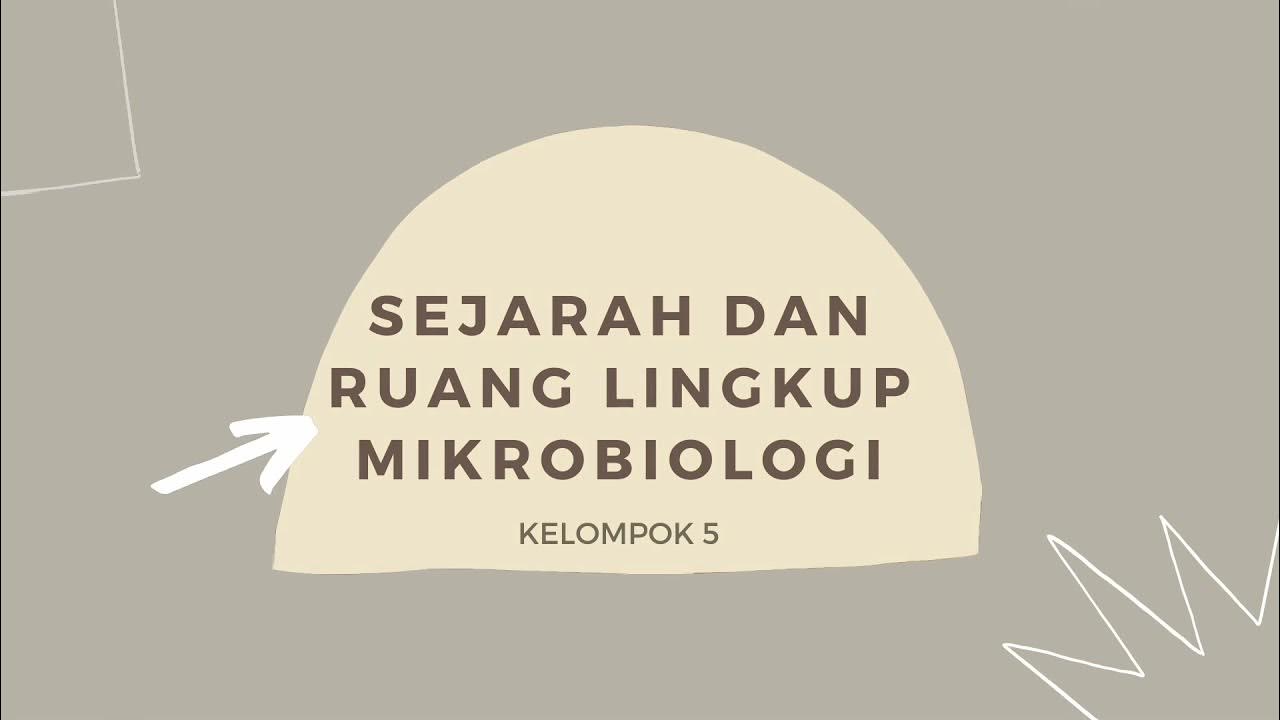The Birth of Microbiology
Summary
TLDRThis script explores the history of microbiology, from the discovery of microorganisms by Antonie van Leeuwenhoek to the contributions of Pasteur and Koch. It highlights the development of germ theory, pasteurization, and the impact on medicine, including Lister's sterile surgery and Ehrlich's chemotherapy. The narrative underscores the profound shift from ignorance to understanding, paving the way for modern treatments and the battle against infectious diseases.
Takeaways
- 🌐 Microorganisms have been the cause of the most devastating diseases in human history, yet were unknown for over 99% of that history.
- 🔬 The invention of the microscope provided definitive proof of the existence of bacteria, first described by Antonie van Leeuwenhoek in 1674.
- 📚 Microbiology as a discipline emerged from debates on fermentation and spoilage, rather than therapeutic needs.
- 🥼 Louis Pasteur, known as the father of microbiology, demonstrated that microorganisms in the air are responsible for fermentation and introduced pasteurization.
- 🦠 Pasteur's germ theory of disease identified microorganisms as the cause of many infectious diseases, which was revolutionary at the time.
- 🩺 Joseph Lister, influenced by Pasteur's ideas, developed sterile surgery techniques, significantly reducing post-operative infections.
- 🏥 The Lancet initially ridiculed Lister's antiseptic methods, but they were later accepted and he is now recognized as the father of modern surgery.
- 🛡️ The Pasteur Institute was created for Pasteur, who later focused on immunization, introducing the concept of 'vaccines'.
- 🔍 Robert Koch formalized microbiology with Koch's postulates and identified the bacterium causing tuberculosis.
- 💊 The pharmaceutical industry's approach to finding treatments involves growing bacteria in vitro, testing chemicals, and progressing to animal and human trials.
- 🎯 Paul Ehrlich, the father of chemotherapy, developed the 'magic bullet' concept, aiming for targeted drug delivery to minimize side effects.
Q & A
What was the major breakthrough that led to the discovery of microorganisms?
-The major breakthrough was the invention of the microscope, which allowed for the first definitive proof of the existence of microorganisms.
Who is credited with the first description of bacteria?
-Antonie van Leeuwenhoek, a Dutch draper and amateur scientist, is credited with the first description of bacteria.
What was the main reason for the slow acceptance of microbiology as a discipline?
-The slow acceptance of microbiology was due to the lack of impact of initial discoveries and the fact that it arose not from therapeutic needs but from debates on fermentation and spoilage.
What is the significance of Louis Pasteur's experiments with swan-necked flasks?
-Pasteur's experiments with swan-necked flasks demonstrated that microorganisms from the air are responsible for the fermentation process, leading to the concept of pasteurization.
What is the germ theory of disease?
-The germ theory of disease, postulated by Louis Pasteur, identifies microorganisms as the etiological agents of many infectious diseases.
How did Joseph Lister's techniques revolutionize surgery?
-Joseph Lister's techniques, which included sterile surgery and the use of carbolic acid as an antiseptic, significantly reduced post-operative infections and laid the foundation for modern surgery.
What was the role of the Pasteur Institute in microbiology?
-The Pasteur Institute, created for Louis Pasteur, was a center for his research and later became a significant institution for the study and advancement of microbiology.
Who is considered the co-founder of microbiology along with Pasteur, and what is his major contribution?
-Robert Koch is considered the co-founder of microbiology along with Pasteur. His major contribution is the formal establishment of microbiology as a science through the development of Koch's postulates.
What are Koch's postulates and why are they important?
-Koch's postulates are a set of criteria to establish a microorganism as the cause of a disease. They are important because they provide a systematic approach to understand the relationship between pathogens and diseases.
How did Paul Ehrlich's work on syphilis contribute to the development of chemotherapy?
-Paul Ehrlich's work on syphilis led to the development of Salvarsan, the first effective chemotherapeutic agent, which marked the beginning of chemotherapy for treating bacterial diseases.
What is the concept of the 'magic bullet' as proposed by Paul Ehrlich, and why was it significant?
-The 'magic bullet' concept proposed by Paul Ehrlich refers to a selective drug delivery system that targets only the disease-causing organisms without harming the host. It was significant because it laid the groundwork for targeted therapies in modern medicine.
Outlines

This section is available to paid users only. Please upgrade to access this part.
Upgrade NowMindmap

This section is available to paid users only. Please upgrade to access this part.
Upgrade NowKeywords

This section is available to paid users only. Please upgrade to access this part.
Upgrade NowHighlights

This section is available to paid users only. Please upgrade to access this part.
Upgrade NowTranscripts

This section is available to paid users only. Please upgrade to access this part.
Upgrade NowBrowse More Related Video
5.0 / 5 (0 votes)





